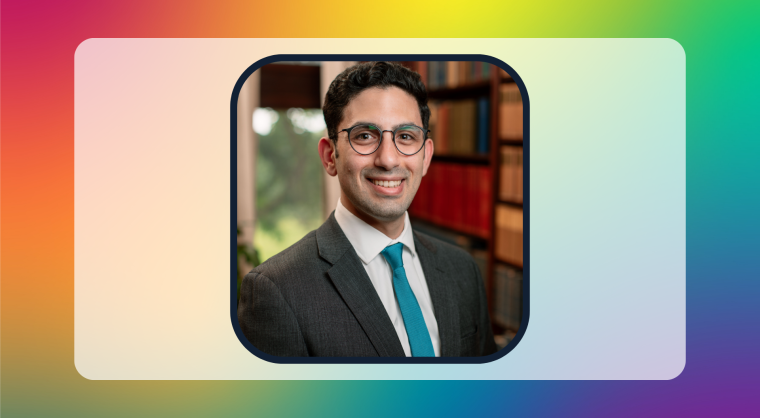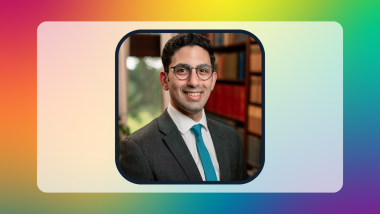Victor Chedid, MD, MS, is an assistant professor of medicine at the Mayo Clinic in Rochester, MN. He is also the IBD Pride Clinic director at the Mayo Clinic, which was established in July 2022 and focuses on the needs of patients with IBD who identify as LGBTQIA+ and a member of Rainbows in Gastro, an advocacy group addressing health disparities for LGBTQIA+ patients and GI trainees and faculty identifying as LGBTQIA+.
Q: What have been your major accomplishments and what obstacles have you faced?
One of my major accomplishments has been the development of the IBD Pride Clinic at Mayo Clinic. I have noticed that with the inception of this clinic, we have created a safe space for all individuals who belong to sexual and gender minority groups to express their concerns and get a more wholistic approach to their IBD care.
Through the advocacy work done through Rainbows in Gastro and partnerships with my colleagues across the U.S. and Canada, we have been shedding light on the needs of LGBTQIA+ trainees, faculty, staff and most importantly, patients. This gives me a lot of hope and excitement for a more inclusive future.
As for obstacles, I have met many people who expressed concerns about conducting LGBTQIA+ health research, citing concerns about political affiliations. I gently remind them that LGBTQIA+ rights are not politics, in fact these are human rights and within our lane as physicians. Additionally, LGBTQIA+ research in GI is quite lacking, which makes it difficult to get funding support without preliminary data. With perseverance and great support from colleagues and friends, I found that these opportunities can be possible.
Q: What do you envision for the future of the LGBTQIA+ physician workforce and for patient care over the next five years?
Despite several legislations and bills that have targeted the LGBTQIA+ community and particularly the transgender and nonbinary community, part of me has a lot of hope for a brighter future. With continued advocacy and support from the LGBTQIA+ community and all our allies, we will continue fighting for human rights and make sure everyone has access to the health care they need.
Q: What inspirational advice would you offer to LGBTQIA+ trainees, medical residents and students?
Remember that when you show up as your true authentic selves to medical school, residency, fellowship and beyond, you show up as the great doctor that you are meant to be. Do not let anyone dim your light or let you think that you are not worthy or not enough. In a previously cis-gender male dominated field, like GI, you will always find your community that will help you thrive and succeed.
Q: What advice regarding empathetic care would you like to share with the field of GI?
Remember to treat all patients with the respect and dignity that they deserve. Check your biases at the door with every patient interaction, including LGBTQIA+ individuals. Do not make any assumptions about patients and always lean in and ask questions with humility, curiosity and sincere interest to improve that individual’s care.













